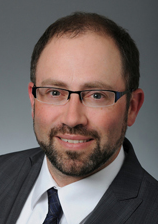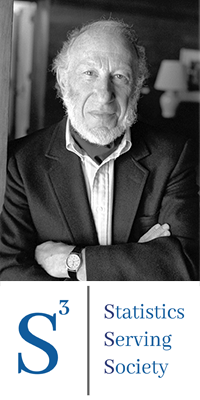[Please Note: The Overview Session has already occurred. Go to the News Story for this event to read about what happened.]
Session Four: Randomization Tests
COVID-19 has resulted in unprecedented clinical trial disruptions. These disruptions have called into question the validity of many planned analyses. For example, there may be a population shift in the treatment effect pre, post or during the disruption of an ongoing clinical trial. Standard parametric and non-parametric analyses that rely on independent or exchangeable responses may not be valid for disrupted clinical trials. For randomized clinical trials randomization based inference, both testing and confidence intervals procedures, offer a robust analysis framework that is still valid even if the independence and/or exchangeability of the responses is called into question. This session will provide guidance on the use and practice of randomization based inference which, with the disruption challenges from COVID-19, may suggest fruitful areas for future research.
The first two days were free and open sessions and served the purpose of exposing the statistical issues surrounding unplanned disruptions of clinical trials and laying the foundations for the issues to be addressed in days 3-6, and possibly more.
Registration
Please read the information about registration carefully.
1) If you attended either Session One and/or Session Two of this forum AND have filled out the Registration of Interest Form, then all you need to do is to select a registration/payment option above the 'Register for this Event' button ($25/session, $75 for forum sessions Session 3-6.). NISS affiliates, (https://www.niss.org/affiliates-list), please send an email to officeadmin@niss.org.).
2) If you attended either the Session One and/or Session Two sessions of this forum but did not fill out the Registration of Interest Form. Please do so BEFORE you select a registration/payment option above the 'Register for this Event' button to pay for Session Three.
3) If you did not attend either the Session One or Session Two sessions of this forum, please watch the videos from one or more of the prior days to "get up to speed" on this working series, (recordings of the sessions as well as the slides used by the speakers) BEFORE you fill out the Registration of Interest Form. After completing the Registration of Interest form, then pay as explained above.
Forum Organizing Committee
Jonathan Bartlett, University of Bath
Adam Lane, University of Cincinnati
Nancy Flournoy, University of Missouri
Chris Jennison, University of Bath
Assaf Oron, Institute for Disease Modeling
Sergey Tarima, Medical College of Wisconsin
Agenda
10:00-10:15 Introduction
James Rosenberger (NISS director, Penn State University)
Nancy Flournoy (chair of the organizing committee, University of Missouri)
Adam Lane (the session organizer, University of Cincinnati)
10:15-10:45 William Rosenberger, (George Mason University)
"Randomization Tests: The Forgotten Component of the Randomized Clinical Trial"
10:45-11:15 Martin Posch, (Medical University of Vienna)
"Salvaging type 1 error rate control by randomization tests when your trial is affected by Covid?"
11:15-11:25 Break
11:25-11:55 Michael Proschan, (NIAID, NIH)
"Re-randomization Tests in the Context of Trial Disruptions”
11:55-12:45 Break-out Room Discussions
Breakout room moderators to include: Diane Uschner  (George Washington University), and Ralf-Dieter Hilgers
(George Washington University), and Ralf-Dieter Hilgers  (RWTH Aachen)
(RWTH Aachen)
12:45-13:00 Synthesis and Next Steps
About the Speakers
 William F. Rosenberger is University Professor at George Mason University. He received his Ph.D. in mathematical statistics from George Washington University in 1992 and since then has spent much of his career developing statistical methodology for randomized clinical trials. He has two books on the subject, Randomization in Clinical Trials: Theory and Practice (Wiley, 2002), which won the Association of American Publishers Award for the best mathematics/statistics book published that year, and has recently been issued in a second edition (Wiley, 2016); and The Theory of Response-Adaptive Randomization in Clinical Trials (Wiley, 2006). He is a Fellow of the American Statistical Association (2005) and of the Institute of Mathematical Statistics (2011). An author of over 100 refereed papers, Prof. Rosenberger was named the 2012 Outstanding Research Faculty by the Volgenau School of Engineering, George Mason University. In 2014, he received a prestigious Fulbright scholarship to support his sabbatical at RWTH Aachen University in Germany. That same year he was promoted to the rank of University Professor, which is reserved for “eminent” individuals on the faculty “of great national or international reputation.” In 2017 he was named the 15th Armitage Lecturer at the University of Cambridge, UK. He has just been named the new North American Editor of Biometrics.
William F. Rosenberger is University Professor at George Mason University. He received his Ph.D. in mathematical statistics from George Washington University in 1992 and since then has spent much of his career developing statistical methodology for randomized clinical trials. He has two books on the subject, Randomization in Clinical Trials: Theory and Practice (Wiley, 2002), which won the Association of American Publishers Award for the best mathematics/statistics book published that year, and has recently been issued in a second edition (Wiley, 2016); and The Theory of Response-Adaptive Randomization in Clinical Trials (Wiley, 2006). He is a Fellow of the American Statistical Association (2005) and of the Institute of Mathematical Statistics (2011). An author of over 100 refereed papers, Prof. Rosenberger was named the 2012 Outstanding Research Faculty by the Volgenau School of Engineering, George Mason University. In 2014, he received a prestigious Fulbright scholarship to support his sabbatical at RWTH Aachen University in Germany. That same year he was promoted to the rank of University Professor, which is reserved for “eminent” individuals on the faculty “of great national or international reputation.” In 2017 he was named the 15th Armitage Lecturer at the University of Cambridge, UK. He has just been named the new North American Editor of Biometrics.
 Michael Proschan is a Mathematical Statistician in the Biostatistics Research Branch at the National Institute of Allergy and Infectious Diseases and an adjunct faculty member at George Washington University. Dr. Proschan received his Ph.D. in Statistics from Florida State University in 1989, and he is a Fellow of the American Statistical Association. His research interests include monitoring and adaptive methods in clinical trials, and he co-authored the book: Statistical Monitoring of Clinical Trials: A Unified Approach, with Gordon Lan and Janet Wittes (Springer, 2006). His work in adaptive clinical trials includes the use of permutation/re-randomization tests to analyze results of adaptive trials, and some of this work is included in his most recent book, co-authored with Pamela Shaw: Essentials of Probability Theory for Statisticians (CRC Press, 2016).
Michael Proschan is a Mathematical Statistician in the Biostatistics Research Branch at the National Institute of Allergy and Infectious Diseases and an adjunct faculty member at George Washington University. Dr. Proschan received his Ph.D. in Statistics from Florida State University in 1989, and he is a Fellow of the American Statistical Association. His research interests include monitoring and adaptive methods in clinical trials, and he co-authored the book: Statistical Monitoring of Clinical Trials: A Unified Approach, with Gordon Lan and Janet Wittes (Springer, 2006). His work in adaptive clinical trials includes the use of permutation/re-randomization tests to analyze results of adaptive trials, and some of this work is included in his most recent book, co-authored with Pamela Shaw: Essentials of Probability Theory for Statisticians (CRC Press, 2016).
 Martin Posch is professor of Medical Statistics at the Medical University of Vienna and head of the Center for Medical Statistics, Informatics and Intelligent Systems. From 2011-2012 he worked as statistical expert at the European Medicines Agency (London, UK) in the Human Medicines Development and Evaluation sector, where he contributed to guideline development and the assessment of study designs. He has a PhD in Mathematics from the University of Vienna and was scientific assistant and associate professor at the Medical University of Vienna. His work focuses on adaptive designs and multiple testing with applications in clinical trials and Bioinformatics.
Martin Posch is professor of Medical Statistics at the Medical University of Vienna and head of the Center for Medical Statistics, Informatics and Intelligent Systems. From 2011-2012 he worked as statistical expert at the European Medicines Agency (London, UK) in the Human Medicines Development and Evaluation sector, where he contributed to guideline development and the assessment of study designs. He has a PhD in Mathematics from the University of Vienna and was scientific assistant and associate professor at the Medical University of Vienna. His work focuses on adaptive designs and multiple testing with applications in clinical trials and Bioinformatics.
Event Type
- NISS Hosted
- NISS Sponsored
Host
Sponsor
Location
Policy

